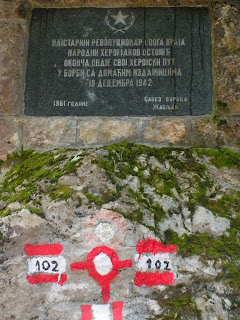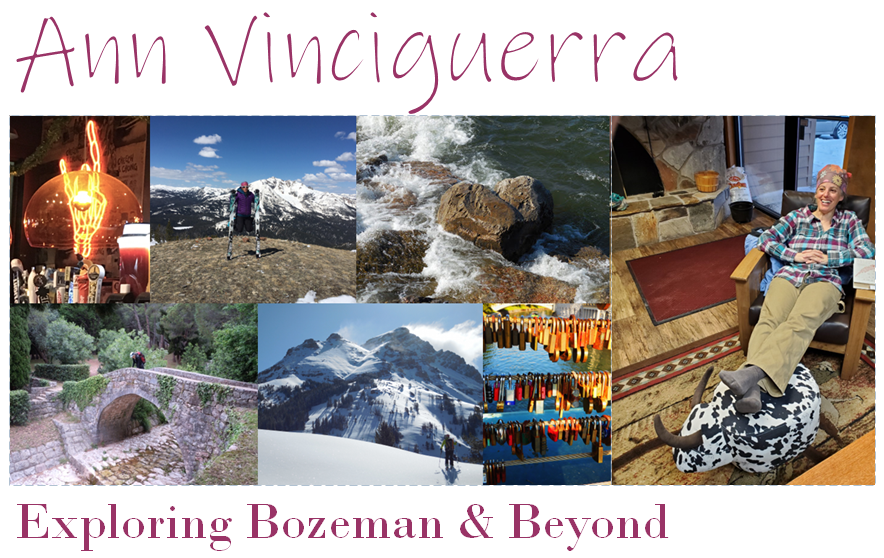Follow my blog with Bloglovin
 |
| Crno Jezero, Montenegro |
One of the things I miss about traveling is hearing the sound of a foreign language spoken daily, which is captivating.
 |
| Alley cats of the Balkans on a "crvena" car |
Through phrase books, talking and listening to native speakers, and simple fact that I spent five weeks in the Balkans, I picked up a bunch of words. I already knew a few words from previous travels to Eastern Europe so I was off to a very basic start. One of the cool things is that the languages spoken in Serbia, Montenegro and Bosnia are very similar so as I traveled from country to country the words I learned in one were usually the same in the next.
Bosnian, Croatian, Montenegrin and Serbian are all national variations of the Serbo-Croatian language. It is part of the Southern Slavic language family so it is possible to know one language and be able to get along conversation-wise in a few others. This is also true of other Slavic languages (Czech, Slovak, Polish, Russian and probably a few others). Very cool indeed.
 |
| Taking a break for pivo with the volunteers in Stara Pazova |
During my travels I wrote down the words I learned each day so I thought I’d include them here before I lose the slip of paper. I also like saying the words while I dream of sipping a pivo at an outdoor cafe on a trg in Sarajevo.
Dobar dan = hello. Change this to dobry den and you’re saying it in Czech.
Hvala = thank you
Kako ste? = How are you?
Doviđenja - Goodbye. Note that the cool looking đ letter is pronounced as a J. So in Serbian, tennis star Novak Djokovic spells his name Novak Đoković.
Dobar = good
Veče = evening
Noć = night.
The ć is pronounced as ts.
Volim = Waiters often approach guests and ask “volim” as is “what would you like?” I think a more literal translation is "Love"
Someone has corrected me. The word the waiter says is “Molim,” which is am guessing is similar to the Czech “Prosim.” It means “Please” or is the equivalent of “May I help you?” if asked as a question. That's one more word I know.
Ženska = Women or woman’s room
Not sure which of these is correct but that’s what it said on the bathroom door.
Note that the symbol over the S and Z give the word a Sh or a ZH sound
Crno or crna = black
Crvena = red
Bijela = white
Lots of letter J in the Slavic languages, which is pronounced as a Y. So is Yugoslavia is
Lots of letter J in the Slavic languages, which is pronounced as a Y. So is Yugoslavia is
Voda = water
Trg = square
Pivo = beer
Kafa or kava = coffee
The words for coffee and beer are the same in many countries from Russia to Macedonia so you can share a drink with folks no matter where you go. And really what more do you need than that?
Srce = heart
Dragan/Dragana (M/F) = Sweetheart or darling. Also a popular name. Interestingly there is a Dragan living in Bozeman who is from Macedonia. He is your typical dreamy Balkan man.
Veliki = big
Mali = little
Stara = old
Novi = new
Gora = mountain
Jezero = lake
Ulaz = entrance
Auto šlep – I’m assuming this is auto towing and not repair because many of these shops stenciled “Auto šlep” on the rocks on the side of the windy seaside and mountain roads in Montenegro. Additionally, the accent on the S makes the pronunciation “Schlep,” which is “Carry” in Yiddish.
Prodaje se = for sale
Izlaz = exit
Namještaj = furniture. Interestingly, big box furniture stores were popular in small towns and big towns a like in Serbia and Montenegro.
 |
| Russia's Lada Niva Mali yet powerful |
 |
| My car of choice if I move to the gora in Eastern Europe |
 |
| Cyrillic is a common in Serbia & Montenegro |
 |
| "A Place for Kissing" As seen on a scenic bridge in Novi Sad, Serbia |





I like your ancient car picture collection :-))
ReplyDeleteBtw I thought waiters ask "Molim?" meaning "please". Now I!m really currius if it really is Volim.
You might be right about the molim. And that is one word I forgot to add to the list. I have a few other car pictures but I tend to think of them as Eastern rather than ancient. The Trabant has eluded me during my travels to the Balkans but I think they're more popular in Germany and the Czech Republic.
ReplyDelete